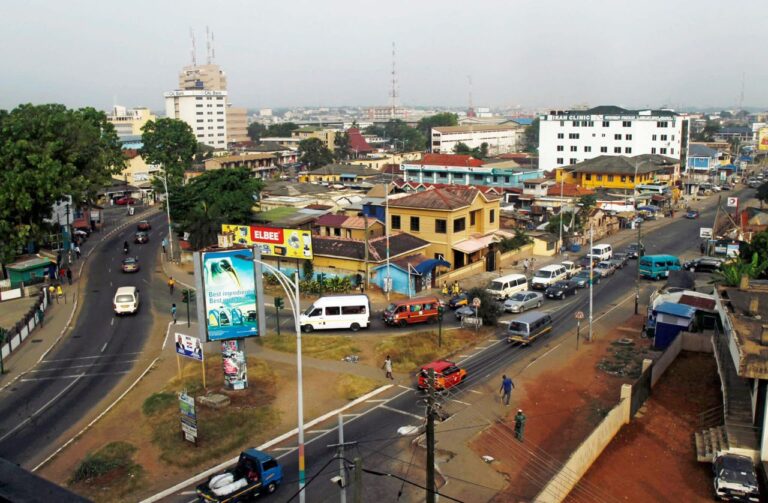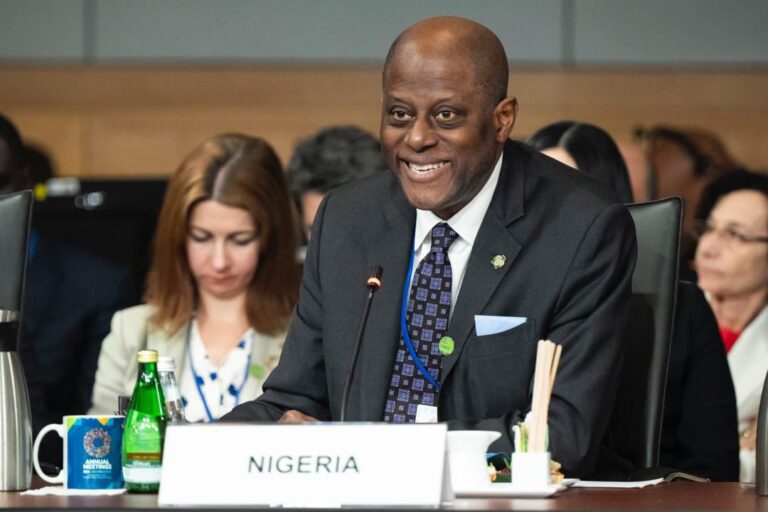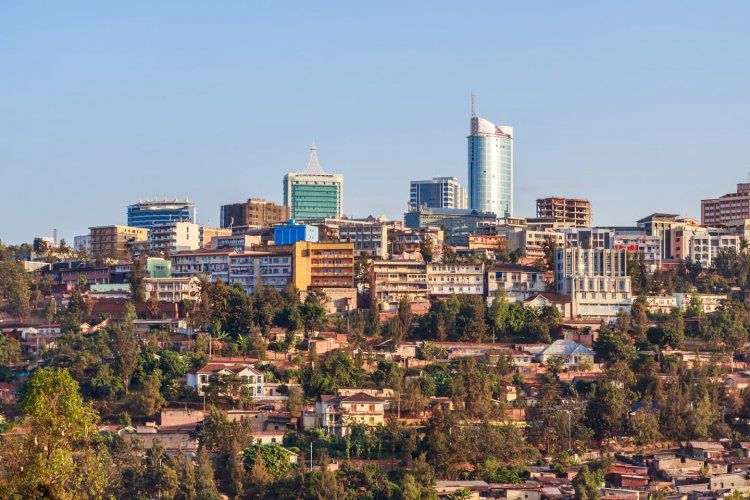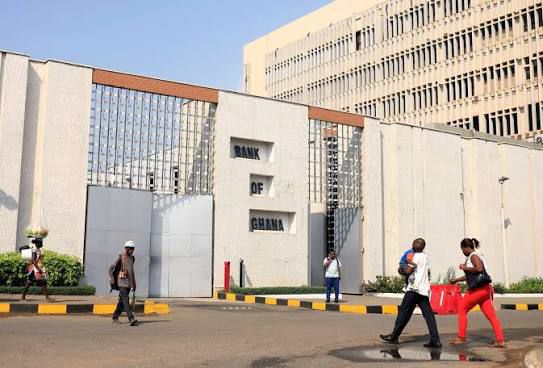Nosa Igbinadolor
I have in the recent past had a brief exchange of views on the issue of free market on X with the brilliant attorney, Abdul Mahmud. In these brief interactions, I sensed his discomfort if not hostility to the idea and practice of free market. Perhaps this suspicion comes from a background of unionism and activism which in most parts of the world have tended to find comfort in if not alliance with welfarism, socialism and even communism.
I have just read his op-ed titled Tinubu’s Free Market. While I have set out to put across my views on the merits and desirability of free market, I find discomfort in doing so against the background of his situating his discourse around the Nigerian president and his recent statement where the president defined himself as a believer in a free market.
I have not set forth to censure and repudiate Abdul Mahmud’s viewpoints, I will explain why I believe that a free market is a more effective mediator of economic activities and growth.
Nigeria does not operate as a free market economy. While it may give the impression of doing so, its economy is largely categorised as unfree. According to the Heritage Foundation’s 2024 Index of Economic Freedom, Nigeria’s economic freedom score is 53.1, ranking it as the 125th freest globally. Within the Sub-Saharan Africa region, Nigeria is ranked 23rd out of 47 countries. Its economic freedom score falls below the global average but exceeds the regional average, leading to its classification as “mostly unfree.”
The country only performs relatively in areas such as government spending and tax burdens. Systemic issues the gatekeep economic freedom persist, including a judicial system vulnerable to political influence, widespread corruption, and a weak rule of law. Regulatory processes remain cumbersome and expensive, creating challenges for entrepreneurs. Additionally, a significant portion of the formal workforce is concentrated in public or energy sector jobs.

Entrepreneurship is fundamentally driven by the need to establish and nurture lasting relationships with customers. By fostering cooperation and encouraging commitments, entrepreneurs mitigate the risk of losing business to more ethical competitors. The adherence to these principles is not merely a moral choice but a practical necessity in competitive markets. Core tenets of free market systems such as private property, freedom of contract, and the rule of law act as a framework that compels individuals and businesses to consider the long-term consequences of their actions, ultimately promoting sustained cooperation and integrity.
Institutions play a crucial role in this dynamic, serving as the “rules of the game” in society. These structures and mechanisms enable social order and cooperation, providing the foundation on which markets operate. Contrary to the perception of markets functioning independently, they exist within an institutional framework. Failures in market systems often reflect institutional shortcomings rather than inherent flaws in the market itself. Such failures frequently arise from institutional capture and manipulation by political interests, which manifest in poorly conceived economic policies and inconsistent policy execution.
Market competition serves as a powerful mechanism for enabling widespread, mutually beneficial interactions. It relies on market-determined prices to communicate critical economic information; data that centralised government entities would find challenging, if not impossible, to aggregate and utilise effectively. When these prices accurately reflect the full spectrum of individual actions and their external impacts, market outcomes achieve efficiency. However, when prices fail to incorporate these externalities, market failures occur. In such cases, public policy interventions have the potential to correct inefficiencies and improve overall economic outcomes.
By understanding the interplay between entrepreneurs, institutions, and market competition, we can appreciate the delicate balance required to sustain ethical and efficient economic systems. Ensuring robust institutions, fostering transparent market mechanisms, and addressing externalities through sound public policy are vital to achieving this equilibrium.
In Nigeria, structural changes that are needed to develop a more vibrant private sector or achieve more broad growth have not emerged.

The advantages of market institutions over government institutions as aptly posited by Thomas Sowell, are not so much in their particular characteristics as institutions but in the fact that people can usually make a better choice out of numerous options than by following a single prescribed process.
Fredrich Von Hayek was right when he argued that, no central planner (government) could possibly aggregate, process, or act upon information as efficiently as decentralised participants respond to the information and incentives conveyed by the price system in competitive markets. Not only will a central planner allocate resources poorly, but the mere attempt to do so will impede the progress and utilisation of social knowledge. Government planning, seen in this light, is not simply inefficient but inherently arbitrary and oppressive.
For the first decade and a half (1960–73), many African economies exceeded projected growth rates largely driven by natural resource export. Indeed, many development observers then were more optimistic about progress in Africa compared to Asian countries, particularly because countries such as Côte d’Ivoire, Ghana, and Zambia already had per capita incomes that exceeded those of East Asian countries, including the Republic of Korea
Why did Africa fail global expectation? State planning took over, including the nationalisation of industries which itself led to the distortion of the market.
From the 1960s to the 1980s, many African nations adopted policies of nationalisation, trade protectionism, and state planning to promote economic independence and industrialisation. The Democratic Republic of the Congo (formerly Zaire) exemplified the challenges of such policies. In the early 1970s, the government nationalised foreign-owned businesses, including the significant mining company Union Minière du Haut-Katanga, aiming to assert economic sovereignty. However, the redistribution of these enterprises to individuals lacking the necessary expertise led to widespread mismanagement. The new owners often liquidated assets for quick profits, resulting in the collapse of commercial infrastructures and severe economic dislocation. This period also saw excessive government regulation, price controls, and an overvalued currency, which, combined with declining commodity prices, precipitated a financial crisis by the mid-1970s. The economic decline persisted into the 1980s, highlighting the detrimental impact of poorly implemented nationalisation and state planning on economic growth.

Between the 1960s and the 1980s, Nigeria’s adoption of nationalisation, trade protectionism, and state planning significantly impeded its economic growth. The nationalisation of key industries such as UAC, banks, breweries etc did not yield the expected outcomes. The nationalisation of the oil sector, led to inefficiencies and corruption. In 1971, the government established the Nigerian National Oil Corporation (NNOC) to control the oil industry, aiming to increase state revenue and reduce foreign dominance. However, this move resulted in mismanagement and a lack of expertise, hindering productivity and deterring foreign investment. The consolidation of state control over the economy often led to patronage and corruption, further stalling economic progress.
Trade protectionist policies, such as high tariffs and import substitution industrialisation (ISI), were implemented to promote domestic industries by restricting imports. While intended to foster self-sufficiency, these measures led to the production of low-quality goods and failed to create competitive industries. The lack of competition resulted in inefficiencies and stifled innovation. Additionally, state-led economic planning, exemplified by the National Development Plans, often suffered from poor implementation and unrealistic targets. The Fourth National Development Plan (1981–1985), for instance, coincided with a global economic recession, leading to declining foreign exchange earnings and balance of payment disequilibrium, which severely impacted the import-dependent manufacturing sector.
In the early 1960s, Latin America’s per capita income was more than double that of East Asia. And today the region lags significantly behind. Several Asian countries that started from low levels of income 50 years ago such as South Korea, Singapore, Taiwan, and Hong Kong—have become developed nations. No country in Latin America can be named developed, although a few are higher-middle income.
One important reason for this large gap is protectionism. Starting in the 1950s, Latin America tried to develop based on import substitution industrialisation, which is the idea that you need to protect your industries from outside competition in order to become industrialised. Three decades later, this was a complete failure and these protected industries didn’t grow. And it left Latin America highly exposed to the debt crisis of the 1980s.
During this period, East Asia was fully into export promotion, tax incentives to exporters, low trade barriers, less protectionism, and fewer controls and regulations. In contrast to Latin America, Asian countries also had a stable macroeconomic environment during this time—smaller fiscal deficit (sometimes surpluses) and low and stable inflation rates. Asian economies also avoided overvalued currencies, something that Latin America was unable to do.

In his treatise, Abdul Mahmud attempted to homologise free market with free trade. They are different concepts of course. The goal of a free market is to maximise consumer choice and efficiency through competition, which ideally leads to innovation and improved products and services. Free trade is specifically about international trade between countries. Because free trade only affects the trade of goods across borders and does not negate other regulations on the buying and selling of those goods once they are in-country, it is not the same as a free market.
At its essence, the trade debate centres on whether the goal of international trade is to enhance consumers’ purchasing power or to strengthen government-supported industries and, by extension, the individuals who work in and invest in those industries.
Let’s not forget that it is free trade that transformed the economies of China, the Asian Tigers, and most developed economies. No country becomes an economic giant by selling mainly to its own market. Nigeria’s market is demand-deficient and unable to drive growth. Only exports drive growth. Exports are significant for economic health. China’s economic growth model depended on the world absorbing its surplus production. All the Asian Tigers depended on exports to grow and become first world economies.
Expanding trade, attracting foreign investment, and fostering competition lead to lower prices, greater consumer choice, and higher incomes. However, if nations begin shutting their borders to free trade, we risk reverting to the “beggar-thy-neighbour” protectionist policies of the 1930s, which, as widely acknowledged by economists, including Keynesians, resulted in a significant economic downturn.
Leftist Professor of Accounting Practice at University of Sheffield Management School, Richard Murphy who advises the Trades Union Congress on economics and taxation rejects Abdul Mahmud’s suggestion of British politicians abandoning neoliberal orthodoxy. In a September 1, 2024 warning to unionists, he wailed, “the Labour Party has abandoned its foundational values of supporting workers and the role of the state in promoting common well-being. Instead, Labour has adopted neoliberal principles. These prioritise individualism, free markets, and deregulation, akin to the Tories. This shift undermines public services and promotes austerity, diminishing the party’s ability to address essential societal issues. Now both the major UK political parties promote this flawed ideology, democracy and public well-being are at risk. The question is, what are we to do?”
In all my years in scholarship and interrogating Nigeria’s political economy, I have never seen any government welfare programme that has led anyone out of poverty. I have however seen the market toke many out of poverty as a result of economic expansion between 2000 and 2014 in Nigeria.
I’ll leave the last retort to Thomas Sowell, whose works I consider a must read for anyone who wishes to understand the salutary role of the market in any economy. He argues that, the rhetoric of socialism may be uplifting, but its practical outcomes have often been bleak. Nations that historically exported food have, after socialising agriculture, faced the grim necessity of importing food to prevent starvation. This pattern has occurred worldwide, cutting across racial and cultural boundaries. The stark contrast between East and West Berlin during the Cold War—when the Communist-controlled East struggled economically while the capitalist West thrived—clearly demonstrated which system delivered greater prosperity for ordinary people. Despite sharing the same race, culture, and history, East Berliners endured far greater poverty and less freedom than their Western counterparts.
A similar narrative unfolded in Africa. After gaining independence in the 1960s, Ghana embraced socialism while the Ivory Coast leaned toward market-driven policies. Ghana initially had the upper hand, with a per capita income twice that of the Ivory Coast. Yet, within a few decades, the poorest 20% in the Ivory Coast were better off than 60% of Ghanaians.
Economic inefficiency, however, is not socialism’s most severe flaw. Attempts to achieve economic equality by imposing political inequality—a cornerstone of Marxist ideology—have led to the deaths of millions under regimes like those of Stalin, Mao, and Pol Pot. History repeatedly shows that granting politicians unchecked power over people’s lives is a dangerous and often deadly proposition.












